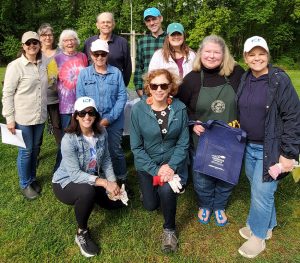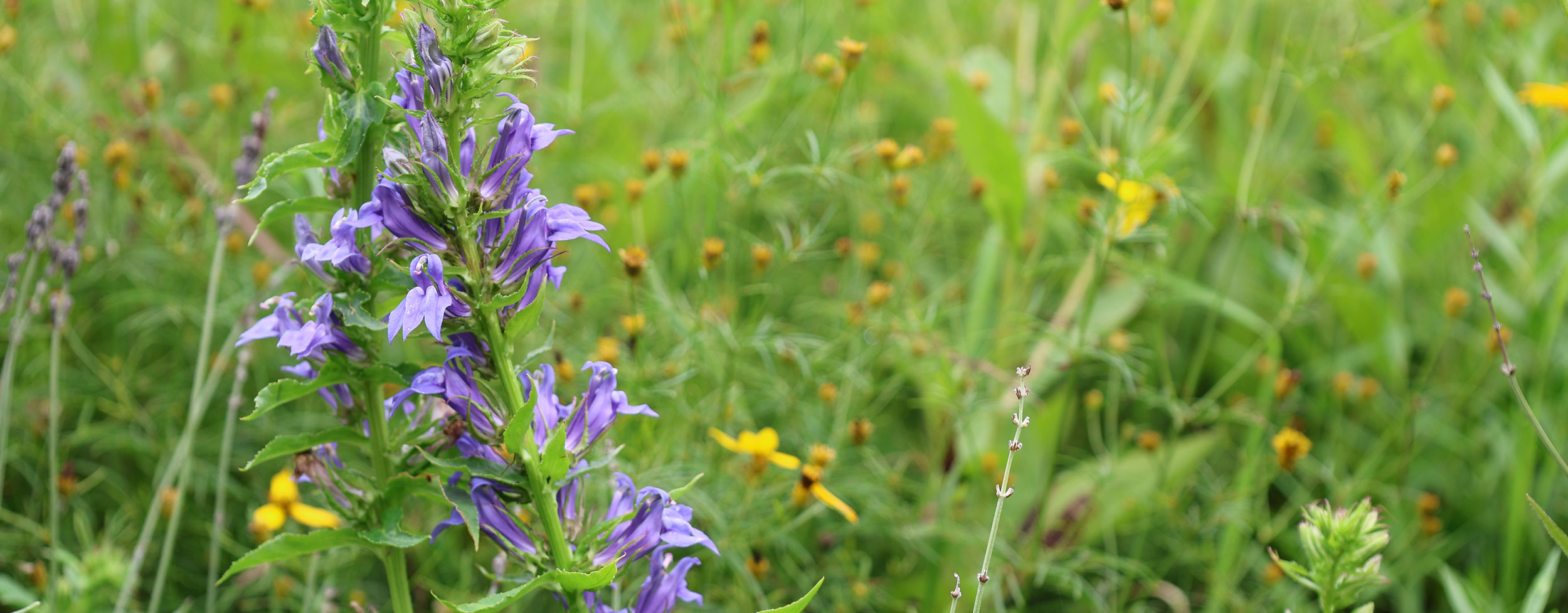
The UConn Extension Demonstration Garden in Bethel is a vibrant learning space designed to showcase sustainable gardening practices while providing hands-on education for the community. The demonstration gardens fulfil their mission of educating the public in many ways. The garden showcases a variety of fruits, vegetables, herbs, and flowers. It is marked with signs educating visitors on companion planting and integrated pest management. When the garden is open to the public during the Saturday Farmer’s Market, many visitors tour the garden to gather inspiration and ask questions on recommended varieties, gardening methods, and pest management techniques.
Each winter, a group of about 30 Master Gardener volunteers meet to evaluate the previous season and plan for the upcoming one. They track crops in numerous spreadsheets, noting weather patterns and pest issues. They seek out pest and disease-resistant plant varieties and early and late-season crops to extend the growing season. They implement new methods for increased harvests and productivity. New structures and enhancements are sometimes added. Many are designed as teaching tools that can be shared with the community. Over the years, an irrigation system has been added, numerous trellises, a rain barrel system, a bird-proof blueberry enclosure, a rain garden, and other enhancements. Most years, planning and improvements result in an increase in the total pounds of produce donated to the community.
This garden features diverse sections that highlight different aspects of home and community gardening, including vegetable production, pollinator support, herb cultivation, composting techniques, and stormwater management through a rain garden. Each area offers valuable insights into environmentally friendly and productive gardening methods.
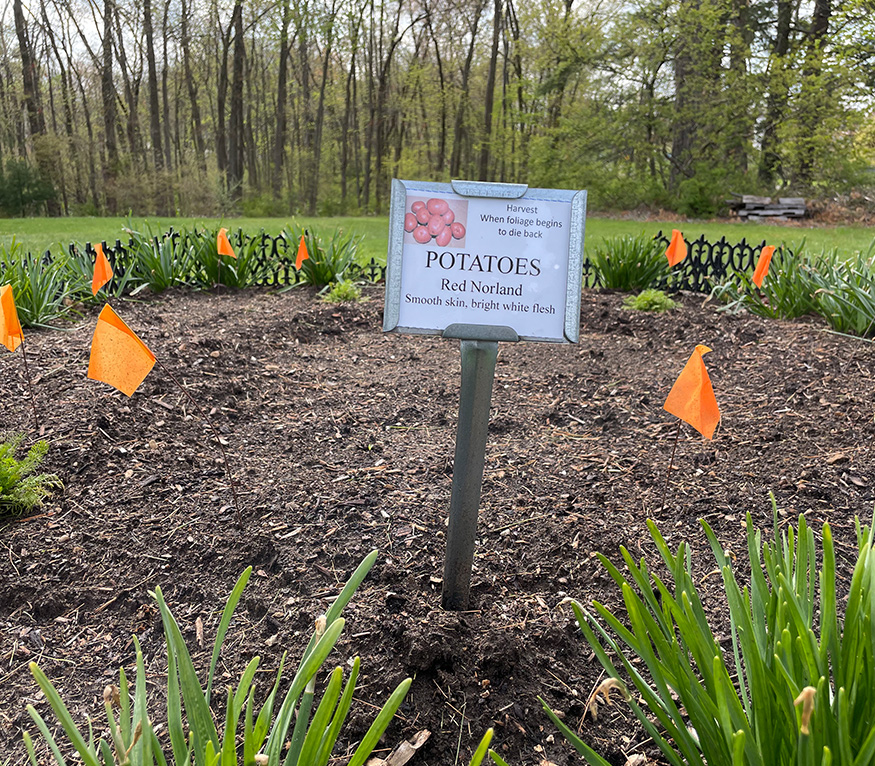
Vegetable Production
The vegetable production area demonstrates best practices for growing fresh, nutritious produce in home and community gardens. Using raised beds, mulching techniques, and integrated pest management, this section showcases efficient ways to maximize yields while minimizing environmental impact. Seasonal plantings include a variety of crops such as tomatoes, peppers, leafy greens, and root vegetables, with an emphasis on crop rotation and soil health.
Pollinator Garden
Designed to attract and support essential pollinators like bees, butterflies, and hummingbirds, the pollinator garden is planted with a diverse selection of native flowers and shrubs. By incorporating plants that bloom throughout the growing season, this space provides a continuous food source for pollinators while also enhancing biodiversity. Educational signage explains the importance of pollinators and how gardeners can create pollinator-friendly habitats at home.
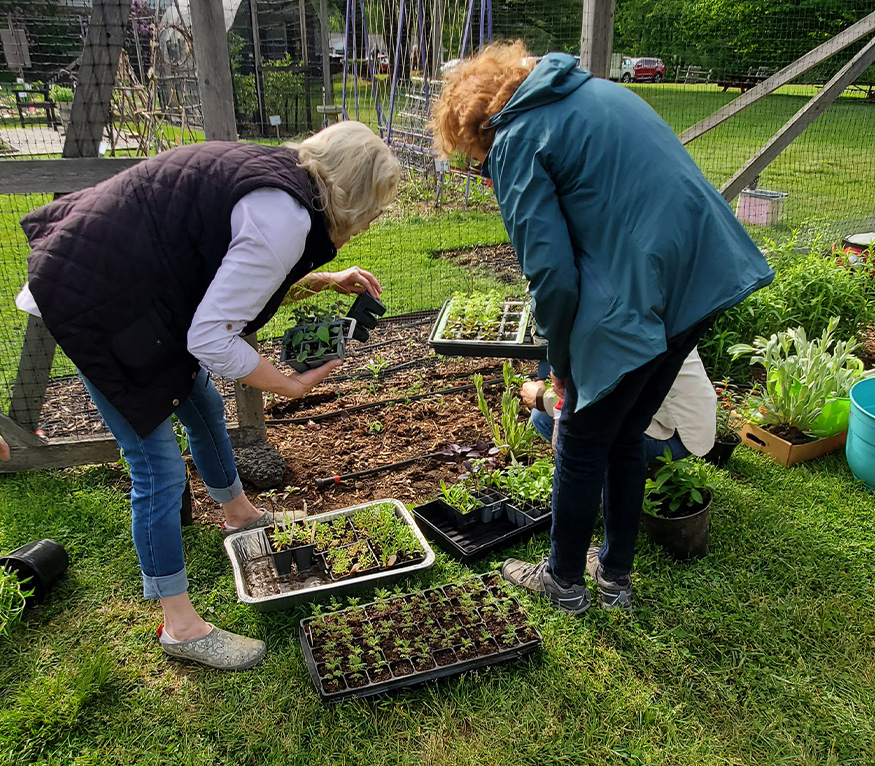
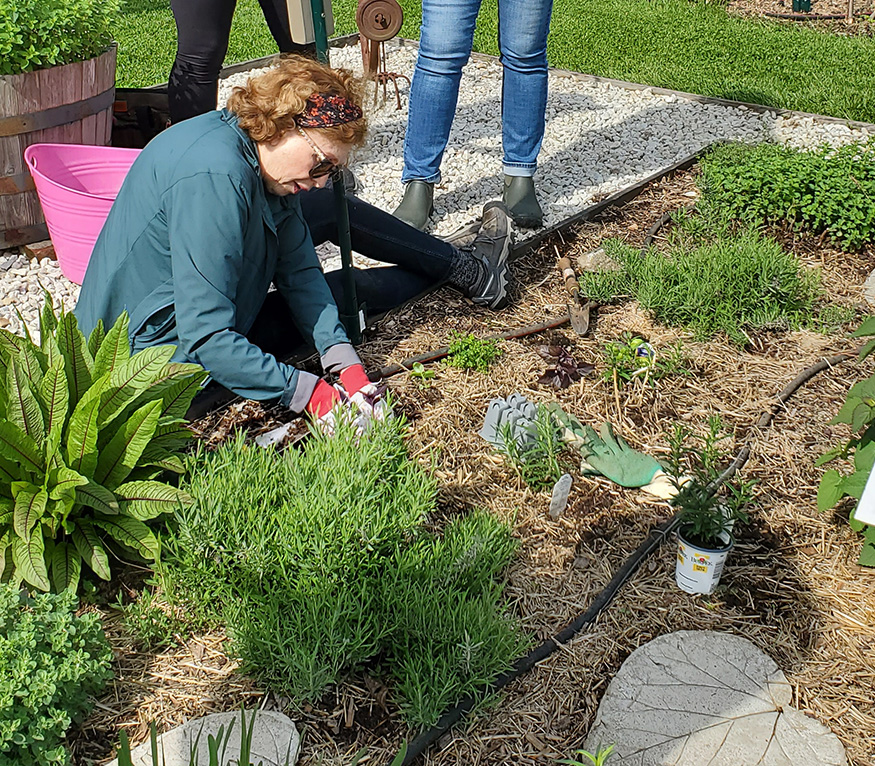
Herb Garden
The herb garden highlights a variety of culinary and medicinal herbs that thrive in Connecticut’s climate. Visitors can explore plantings of basil, rosemary, thyme, lavender, and other aromatic herbs, learning about their uses in cooking, natural remedies, and companion planting. The layout emphasizes sustainable gardening techniques, such as proper spacing, mulching, and organic pest control, to ensure healthy and productive herb growth.
Compost Bin
The composting area serves as a model for responsible waste management and soil enrichment. Demonstrations cover different composting methods, including traditional bins, tumblers, and vermicomposting. By teaching visitors how to compost food scraps, garden waste, and other organic materials, this section promotes a circular approach to soil health while reducing landfill waste.
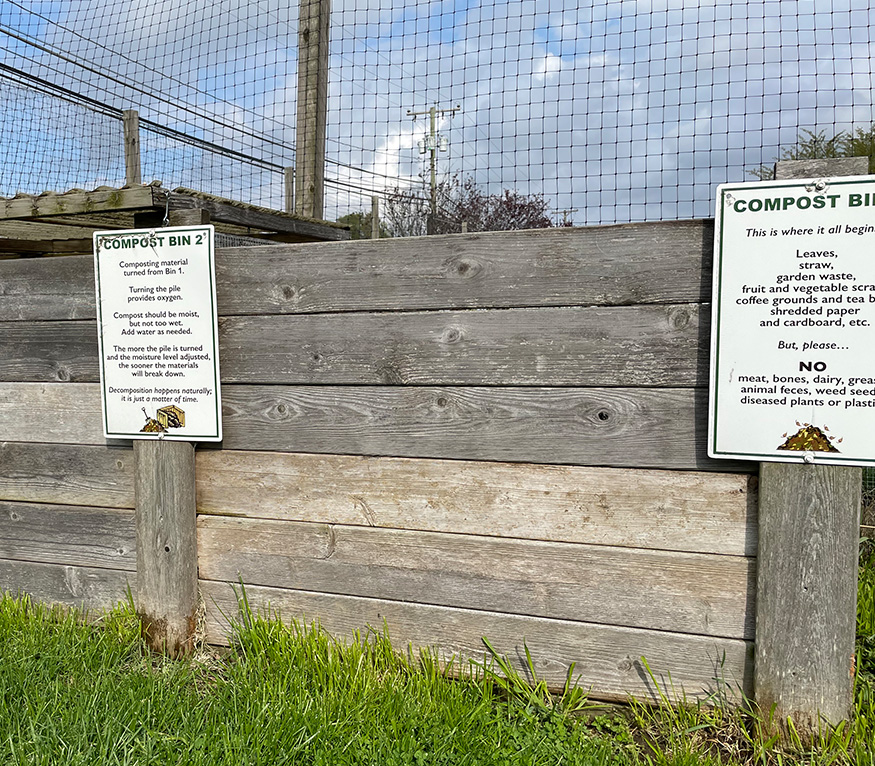
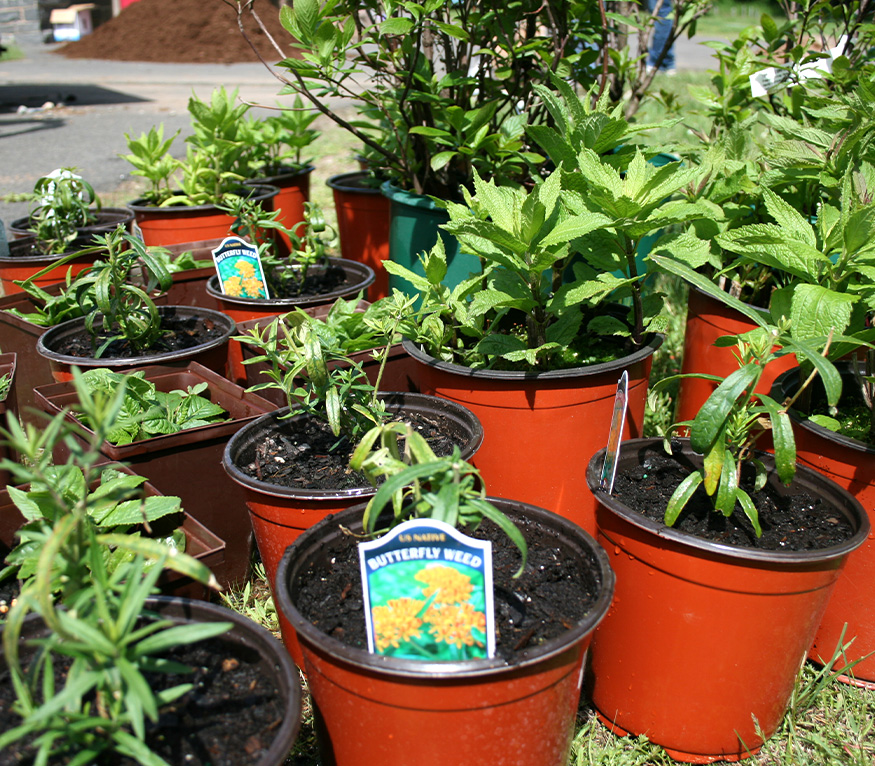
Rain Garden
The rain garden showcases a natural solution for managing stormwater runoff, helping to reduce erosion and improve water quality. Planted with deep-rooted native species, this area absorbs and filters rainwater, preventing excess runoff from reaching nearby waterways. Educational components highlight the benefits of rain gardens and offer guidance on how homeowners can implement similar features in their landscapes to enhance sustainability.
Design Your Own Rain Garden
UConn CLEAR (Center for Land Use Education and Research) created a Rain Garden App. This app is a free tool which provides a step by step guide for how to properly install a rain garden featuring video tutorials, tips and tricks, and various tools to assist you along the way. There is also a companion website that has similar information. Learn more on the Rain Garden website.
